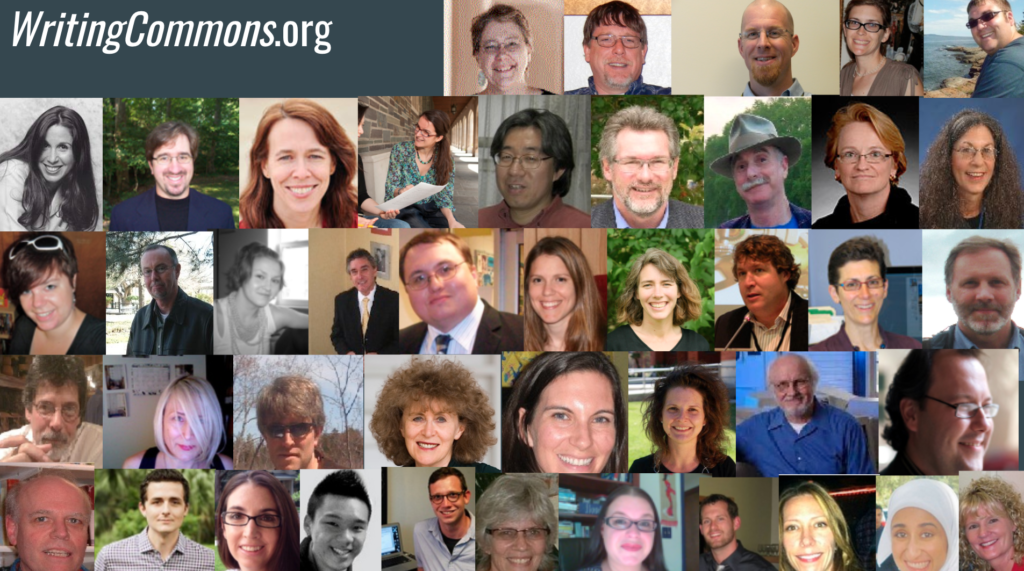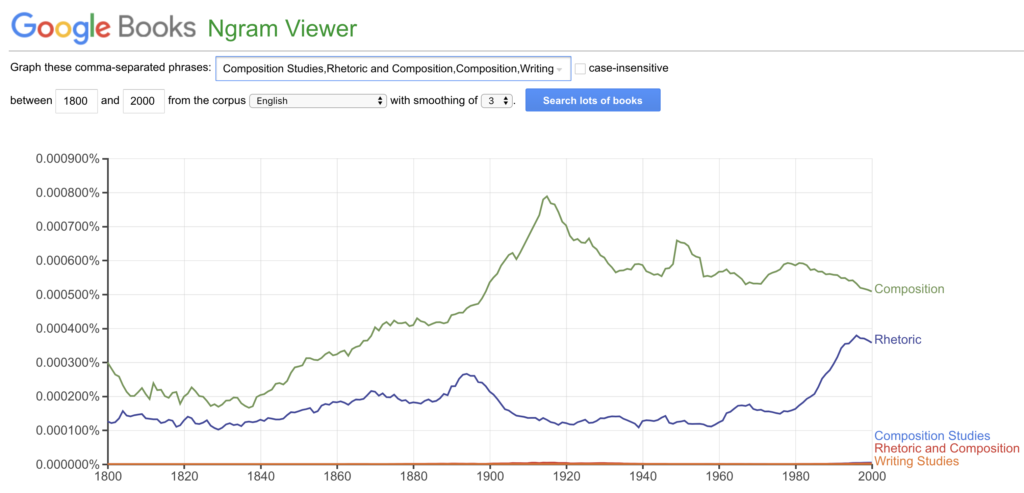Synonymous Terms
Writing Studies may also be known as
- Rhetoric and Composition
- Composition Studies
- Rhetoric
- Rhetoric & Culture
- Rhetorical Theory
- Texts & Technology
- Writing History and Theory
- Poetics, Rhetorics, Technologies.
Related Concepts: Discourse Community, Community of Practice
Literacy today is in the midst of a tectonic change. Even inside of school, never before have writing and composing generated such diversity in definition. (Yancey 2004, p. 298)
What is Writing Studies?
1. Writing Studies refers to an interdisciplinary community of scholars and researchers who study writing



The study of writing has a distinguished heritage. Since antiquity, writing has been a topic of philosophical inquiry and research (see Wikipedia’s History of Writing). People have been theorizing about how to write well since the emergence of writing in Mesopotamia 3400 to 3300 BC. The ancient Greeks were deeply interested in studies on rhetoric, logic, and grammar (see, e.g., Plato’s dialogues).
In the modern university, writing studies remains a robust field of inquiry–particularly with innovations such as ChatGPT changing the landscape of composing.
2. Writing Studies refers to an interdisciplinary, academic discipline
Since the 1970s, U.S. institutions of higher education have offered undergraduate degrees, master’s and doctoral degrees that specialize in the study of writing.
Traditionally, disciplinary fields are defined by the name experts ascribe to their graduate-level degree programs. For instance, if you get an MA or a PhD in Chemistry, the name of your Ph.D. is Doctorate of Chemistry. However, this is not the case when it comes to a specialization in writing theory, research, or pedagogy. The database of Ph.D. and MA granting institutions, maintained by the Consortium of Doctoral Programs in Rhetoric and Composition, demonstrates disciplinary experts do not agree on a common term for the field. Here are some of the more popular titles for MA and Ph.D. programs:
- Rhetoric and Composition
- Composition Studies;
- Writing Studies;
- Rhetoric & Culture;
- Texts & Technology;
- Writing History and Theory; and
- Poetics, Rhetorics, Technologies.
Rhetoric & Composition
A quick review of the names of degree programs suggests the most common title is Rhetoric and Composition. And that title is supported by the name of the organization that tracks these programs, The Consortium of Doctoral Programs in Rhetoric and Composition.
Naming the discipline first after Rhetoric makes good sense. Rhetoricians hold the First Mover Advantage. The early works of Socrates, Aristotle, Isocrates, Cicero, Quintilian form the foundation of the discipline of writing studies. It was this rhetorical tradition that led Sherman Hill, president of Harvard, in 1869 to establish a dedicated course for the “study of the English language” (as qtd. in Miller, 2006).
Even so, no one seems terribly excited about the moniker Rhetoric and Composition. As of 5/19, no one has thought Rhetoric & Composition sufficiently important enough to warrant a Wikipedia page:
And the title Rhetoric and Composition doesn’t show a lot of traction in Google’s NGrams of Books Published between 1800 and 2000.



Composition Studies
Composition Studies is an umbrella term that includes the works of rhetoricians and other subdisciplines. In support of this view, note how the Conference on College Composition and Communication, the major professional organization for this academic field, defines Composition:
The field of composition studies draws on research and theories from a broad range of humanistic disciplines—English studies, rhetoric, cultural studies, LGBT studies, gender studies, critical theory, education, technology studies, race studies, communication, philosophy of language, anthropology, sociology, and others—and from within composition and rhetoric studies, where a number of subfields have also developed, such as technical communication, computers and composition, writing across the curriculum, research practices, and the history of these fields.
Conference on College Composition and Communication
The primary journal in the field is called College Composition and Communication. And, the academic conference in the field has historically been The Conference on College Composition and Communication.







